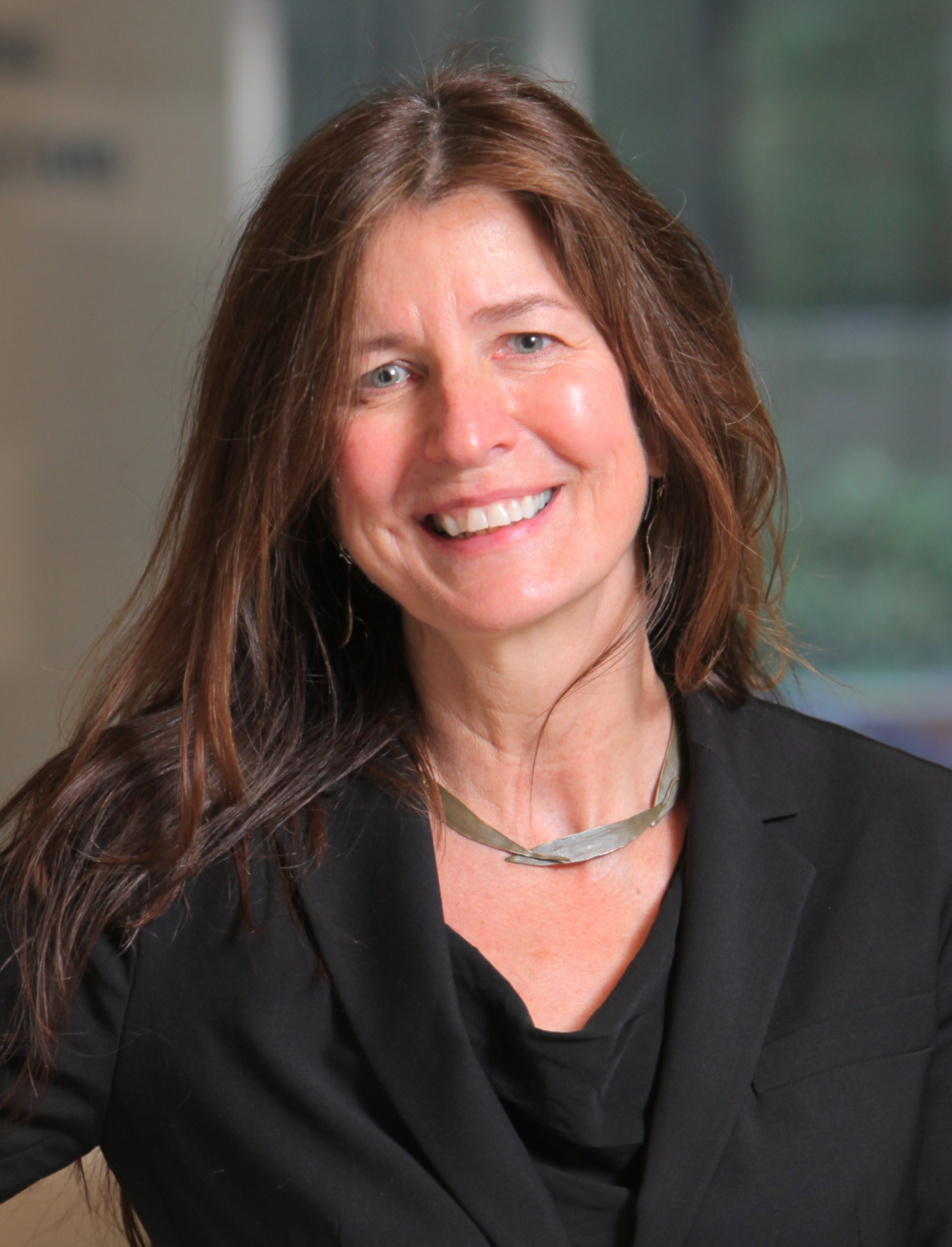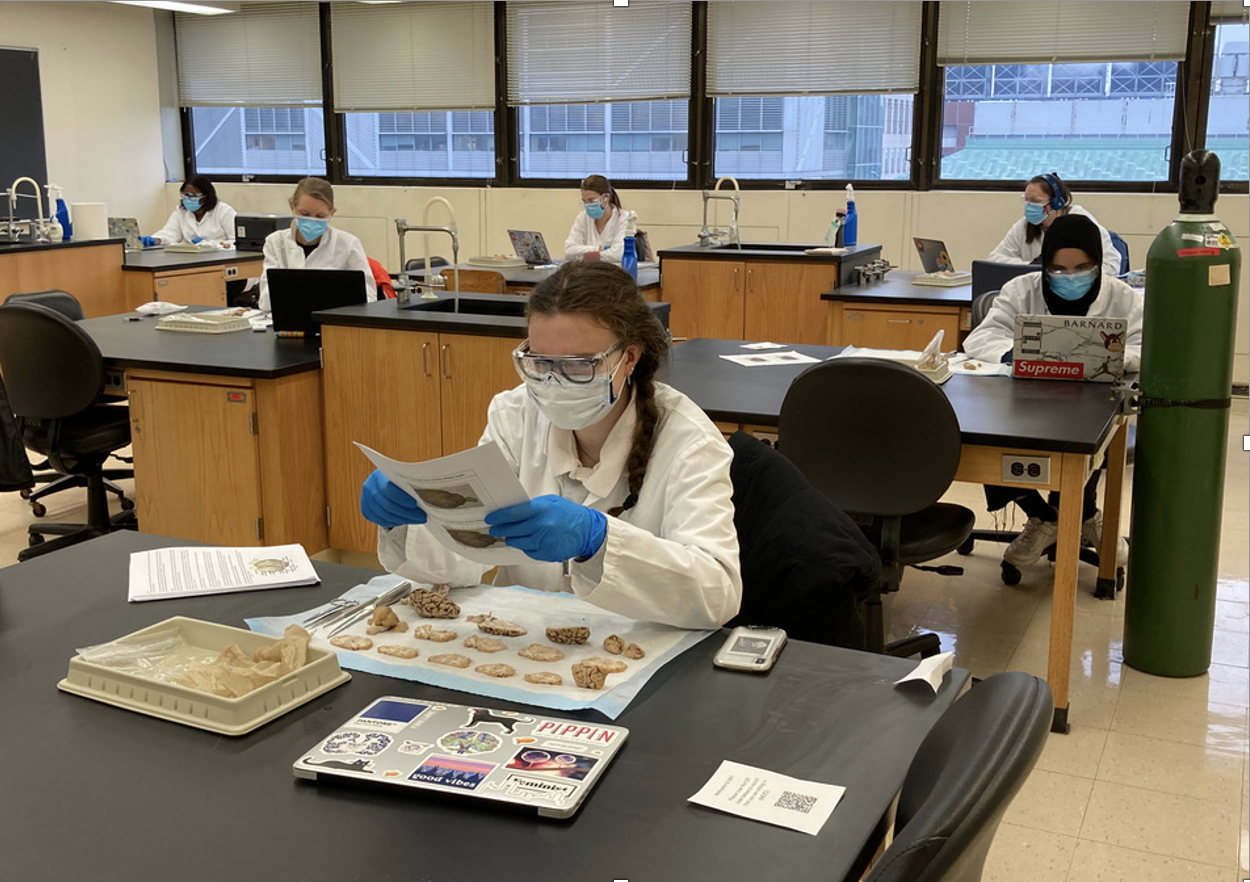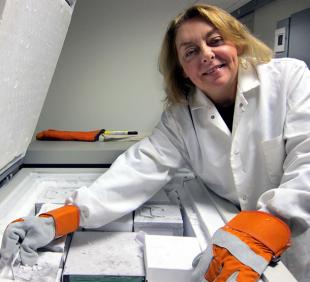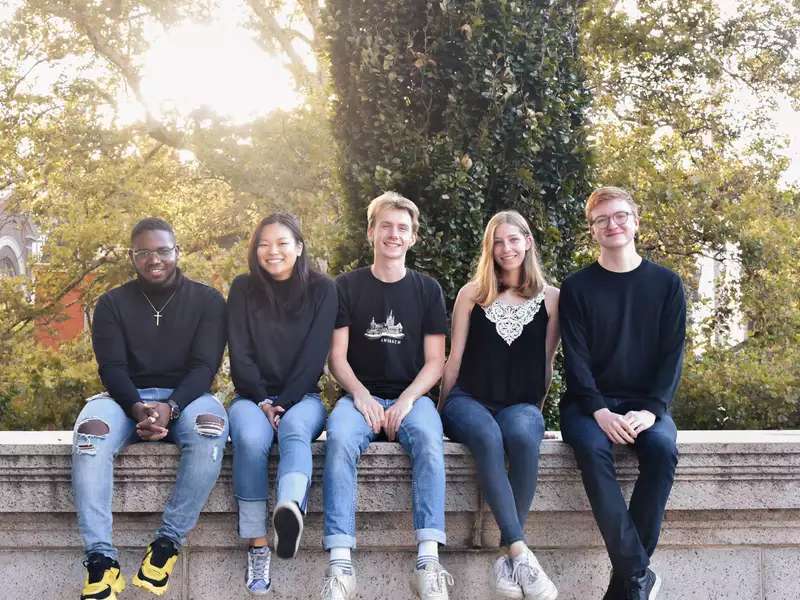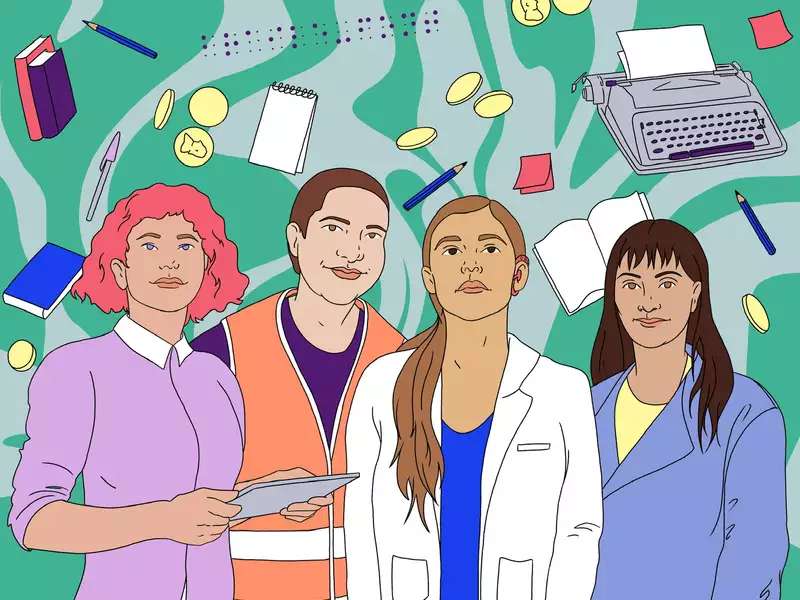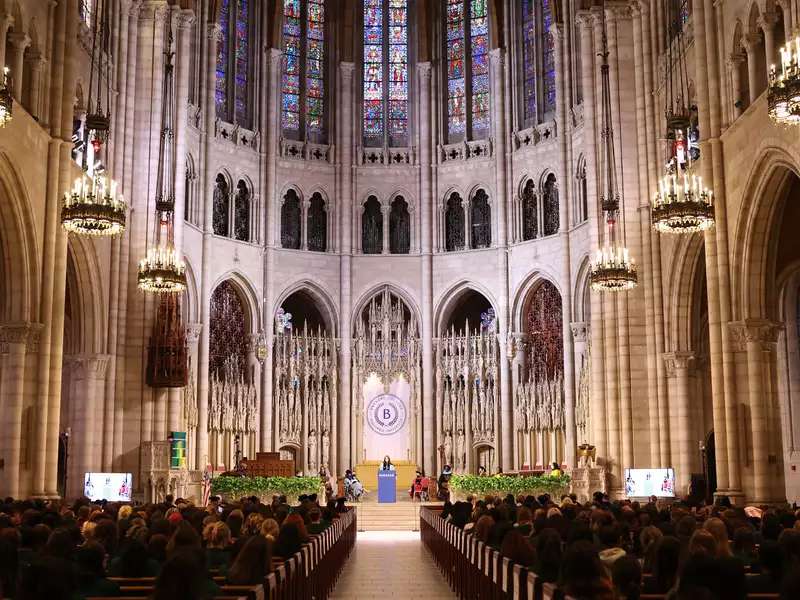The Barnard Year of Science, which kicked off officially during Convocation, is in full swing with a series of events and other interdisciplinary offerings. Through July 2022, the College will celebrate all things related to science, technology, engineering, and math (STEM) — from expanding STEM curricula to creating programming for the entire community.
This month, Barnard is spotlighting neuroscience and behavior. The Department of Neuroscience and Behavior, one of the College’s most popular programs, has grown to more than 100 majors since 2019. To further highlight the discipline’s interest with students and its importance within the Barnard Year of Science, the College is welcoming renowned psychology professor BJ Casey to the community to commemorate the month of October and the rest of the STEM-filled academic year.
Neuroscience Welcomes BJ Casey
As the two-year-old department continues to attract students, it is also growing its faculty. One of its three new professors is BJ Casey. Casey comes to the College from Yale University, where she has been a professor of psychology and a member of the Justice Collaboratory at the law school since 2016. She will join the Department of Neuroscience and Behavior in July 2022.
Casey brings to Barnard her knowledge of human neuroimaging and its use in typical and atypical development. Her research, which spans more than 25 years, focuses on cognitive control and self-control — the brain’s ability to suppress immediate or inappropriate thoughts, emotions, and behavior in favor of goal-oriented ones. Casey’s work, which links psychology, neuroscience, and law, has been used in the juvenile justice field. At Yale, she teaches courses on the adolescent brain, neural development, and clinical neuroscience.
“I am thrilled that Professor Casey is joining us, especially during the Barnard Year of Science,” said President Sian Leah Beilock, whose own research centers on helping girls and women succeed in STEM fields. “Her expertise on the developing adolescent human brain makes her an ideal addition to the College community and its commitment to showing how science is an essential component in all facets of life.”
At Barnard, Casey will hold the Christina L. Williams Chair of Neuroscience. Christina L. Williams, a former professor and chair of the Barnard Psychology Department, initiated and established the professorship and committed to an additional estate gift to make this a permanent endowed fund. “I am delighted that this endowed chair will help bring the gifted and talented BJ Casey to Barnard,” said Williams, who is currently a professor of psychology and neuroscience at Duke University, where she specializes in aging and Alzheimer’s research. “I love that Barnard students will have the opportunity to work with and learn from her, because her research spans the breadth of brain science.”
Casey believes that it is a particularly exciting time to join the faculty because of BYOS. “I’m thrilled as a cognitive neuroscientist to be arriving at Barnard when there is so much enthusiasm and synergy around the sciences,” she said. “Having the opportunity to encourage and celebrate scientific curiosity and discovery in our next generation of women scientists and leaders is exactly what drew me to the College.”
On the October 13, the community will have an opportunity to hear from Casey, who will join the panel Cognitive Neuroscience at Barnard: Exploring the Human Mind, along with Alex White, another new hire in the Department of Neuroscience and Behavior, and Barnard President Beilock, an expert on the cognitive neuroscience of learning and performance under stress. Moderated by Rae Silver, Helene L. and Mark N. Kaplan Professor of Natural and Physical Sciences and chair of the Department of Neuroscience and Behavior and the Department of Psychology, the panel will discuss what cognitive neuroscience is (and isn’t), as well as Barnard’s expansion of research in the field.
Behind the Growing Popularity of Neuroscience at Barnard
The cognitive neuroscience panel, as well as the entire BYOS undertaking, is a direct response to the College’s robust interest in STEM. For instance, Barnard students exceeded national averages when 34% of the Class of 2021 became STEM majors, compared with about 26% nationally. Two of the most sought-after areas are also two of the College’s newest majors — computer science and neuroscience and behavior. Each began in 2019 and are now among Barnard’s top 10 most popular majors.
“The field of neuroscience and the study of the brain is widely considered the ‘new frontier.’ It is not only of interest at a scientific level but is also personally interesting to everyone with a brain and a mind,” said renowned scientist Rae Silver about the department’s popularity.
Prior to 2019, students interested in neuroscience had to enroll in a program jointly run by the biology and psychology departments. Now, under the new Department of Neuroscience and Behavior curricula, majors must take a total of 17 courses and complete a senior thesis. Beyond classroom work, each student can complete a neuroscience project in a lab at Barnard, Columbia, or off-site.
Silver believes that this course of study is another reason why the department has such appeal. “The major requirements of the Department of Neuroscience and Behavior have been very carefully developed to encompass the goals of students who want to move into medicine or graduate school,” she said. “More specifically, the course of study permits students to follow a route into computational neuroscience, cognitive neuroscience, cellular and molecular neuroscience, as well as medicine.”
Make sure to RSVP for Casey’s upcoming event with President Beilock on October 13. And visit the BYOS website to stay abreast of upcoming events and developments.
